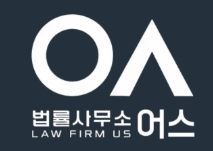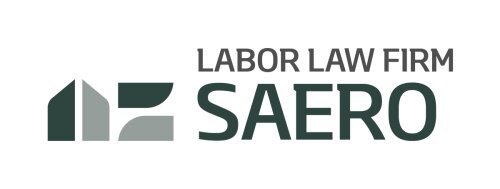Best Labor Law Lawyers in Seoul
Share your needs with us, get contacted by law firms.
Free. Takes 2 min.
List of the best lawyers in Seoul, South Korea
About Labor Law in Seoul, South Korea:
Labor Law in Seoul, South Korea governs the relationship between employers and employees, ensuring fair treatment and protection of workers' rights. The laws cover various aspects such as working hours, wages, workplace safety, and protection against discrimination.
Why You May Need a Lawyer:
You may need a lawyer in Labor Law in Seoul, South Korea if you are facing issues such as unfair dismissal, wage disputes, harassment at work, or violations of labor rights. A lawyer can help you understand your legal rights, navigate the complex legal system, and represent you in negotiations or court proceedings.
Local Laws Overview:
In Seoul, South Korea, the Labor Standards Act is the primary legislation that governs labor relations. Some key aspects include minimum wage, working hours, overtime pay, annual leave, and protection against unfair dismissal. Additionally, the Employment Equality Act prohibits discrimination based on gender, age, disability, or other factors in the workplace.
Frequently Asked Questions:
1. Can my employer terminate my employment without a valid reason?
No, under the Labor Standards Act, an employer must have a valid reason for terminating an employee, such as poor performance or misconduct.
2. What is the minimum wage in Seoul, South Korea?
The minimum wage in Seoul is adjusted annually and currently stands at KRW 8,720 per hour.
3. Am I entitled to paid annual leave?
Yes, under the Labor Standards Act, employees are entitled to paid annual leave based on their length of service.
4. Can I file a complaint against my employer for workplace harassment?
Yes, the Industrial Accident Compensation Insurance Act prohibits workplace harassment, and you can file a complaint with the Ministry of Employment and Labor or seek legal assistance.
5. What are my rights in case of a work-related injury?
If you suffer a work-related injury, you are entitled to compensation and medical treatment under the Industrial Accident Compensation Insurance Act.
6. Is it legal for my employer to make me work overtime without additional pay?
No, under the Labor Standards Act, employers must pay employees overtime rates for work performed beyond regular working hours.
7. Can my employer force me to take unpaid leave?
Employers cannot force employees to take unpaid leave without a valid reason, as it may constitute an unfair labor practice.
8. How can I challenge unfair treatment or discrimination at work?
You can file a complaint with the Labor Ministry or seek legal advice to challenge unfair treatment or discrimination based on the Employment Equality Act.
9. Can I negotiate better terms and conditions with my employer?
Yes, you can negotiate better terms and conditions with your employer, but it's advisable to seek legal advice to ensure your rights are protected.
10. How can a lawyer help me with a labor dispute?
A lawyer can provide legal advice, represent you in negotiations with your employer, prepare legal documents, and represent you in court if necessary to resolve a labor dispute.
Additional Resources:
For more information on labor laws and rights in Seoul, South Korea, you can visit the Ministry of Employment and Labor website or seek assistance from the Labor Welfare Center or labor rights organizations.
Next Steps:
If you require legal assistance in Labor Law in Seoul, South Korea, it's advisable to consult with a qualified labor lawyer who can assess your situation, provide legal advice, and represent your interests to ensure your rights are protected.
Lawzana helps you find the best lawyers and law firms in Seoul through a curated and pre-screened list of qualified legal professionals. Our platform offers rankings and detailed profiles of attorneys and law firms, allowing you to compare based on practice areas, including Labor Law, experience, and client feedback.
Each profile includes a description of the firm's areas of practice, client reviews, team members and partners, year of establishment, spoken languages, office locations, contact information, social media presence, and any published articles or resources. Most firms on our platform speak English and are experienced in both local and international legal matters.
Get a quote from top-rated law firms in Seoul, South Korea — quickly, securely, and without unnecessary hassle.
Disclaimer:
The information provided on this page is for general informational purposes only and does not constitute legal advice. While we strive to ensure the accuracy and relevance of the content, legal information may change over time, and interpretations of the law can vary. You should always consult with a qualified legal professional for advice specific to your situation.
We disclaim all liability for actions taken or not taken based on the content of this page. If you believe any information is incorrect or outdated, please contact us, and we will review and update it where appropriate.














